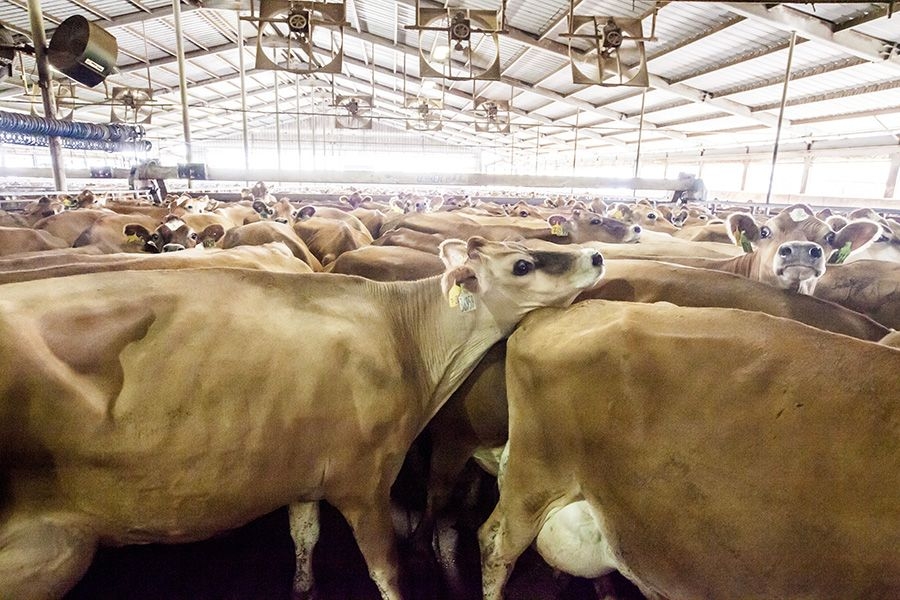A new Portland company sees opportunity in recycling wastewater, as drought and water scarcity present looming social and economic challenges.
For several years, Ben Vitale helped companies monetize their reductions in greenhouse-gas emissions when he worked at the Climate Trust. As president of the Portland carbon asset manager between 2009 and 2013, he managed a $20 million portfolio of carbon-emission reduction projects.
He has now turned his hand to helping companies reduce consumption of a natural resource that is becoming scarcer as the climate changes: water. His new company, Resilient Infrastructure Group, founded in 2019, provides private and public organizations with on-site treatment solutions that aim to recycle wastewater and even monetize emissions from sewage.
Resilient targets organizations that are heavy water users and that spend large amounts of money and energy having water treated by municipalities. Treating wastewater is energy intensive, comprising an estimated 10% of total energy use.
Despite the cost of using and treating water, many organizations use vast amounts of water every day that is not recycled. College campuses and medical centers, for example, use between half a million and a million gallons of drinking-quality water a day just for cooling and chilling their facilities. “There are many applications where you don’t need to use drinking-quality water,” says Vitale.
Managing water scarcity will be one of the biggest environmental challenges of our time. A warming planet, drought and heavy water use by industry and growing populations threaten to destabilize existing resources and degrade the environment.
At least 40 states anticipate water shortages by 2024, according to the Environmental Protection Agency. Western states are particularly vulnerable. Arizona has gone through a mega drought for the past 20 years. California has entered another drought this year, just two years after its last dry spell that lasted between 2011 and 2019.
And in Oregon drought is putting farming operations at risk in southern parts of the state. Gov. Kate Brown declared drought emergency in Klamath County in March this year. The Klamath Basin, a predominantly agricultural area, is facing another summer with mountain snowpack well below normal.
Water-management solutions will be the key to sustainability in many regions throughout the U.S. and the rest of the world. Yet wastewater infrastructure has been neglected in this country. The American Society of Civil Engineers has given a D rating to companies’ water infrastructure. The sector in the U.S. is underinvested by $70 billion to $100 billion a year, says Vitale.
“That lack of investment, coupled with increased growth demands, means infrastructure is not able to support industrial and community demands,” he says.
Resilient Infrastructure Group has the backing of large private-equity funding from Partners Group. The global investment firm, which manages $109 billion in assets, bought the startup in February this year. The acquisition gives the Portland company the ability to grow infrastructure projects across North America. Over the next five to six years, it aims to build its portfolio to as much as $1 billion in assets, says Vitale.
The first project in Resilient’s portfolio is a wastewater treatment project at Threemile Canyon Farms, a mega dairy in Boardman, in Eastern Oregon. It will build a wastewater-treatment facility on-site, which will capture methane and convert the gas into renewable natural gas for use as a low-carbon transportation fuel.
The dairy, which has 30,000 dairy cows, provides milk for Tillamook Cheese’s nearby factory in Boardman. Vitale has a 10-year working relationship with the farm’s owners. In 2011 Vitale worked with the diary’s owners to install digesters to capture methane from wastewater to generate renewable electricity. The farm monetizes the carbon emissions it prevents from being released into the atmosphere by generating and selling carbon offsets.
RELATED STORY: Milking Profits
Vitale’s new project at Threemile will capture more of the methane from the wastewater through the construction of more digester tanks. The captured methane will then be injected into a pipeline and sent to California for use as renewable natural gas transportation fuel. The estimated emissions reductions from the project are equivalent to removing 31,500 passenger vehicles from the road for the year.
“The renewable natural gas that is generated is the lowest-carbon-intensity fuel of any kind,” says Vitale. “When you compare the emissions to diesel or natural gas, or even other renewable natural gas generated from landfills or wastewater-treatment plants, this dairy fuel is the lowest carbon intensity.”
The company chose to sell the renewable natural gas to California because of the high price it will fetch under the state’s low-carbon fuel standard. The environmental regulation aims to reduce the carbon intensity of transportation fuel by at least 20% by 2030. With 40% of California’s greenhouse-gas emissions coming from transportation, companies such as Threemile Canyon Farms can earn more by selling renewable natural gas as a transportation fuel than they can by selling it as renewable electricity.
Oregon has a similar low-carbon fuel standard to California, but demand for low-carbon fuel is higher in the Golden State, and its low-carbon fuel standard credits sell for 60% higher than in Oregon.
Resilient Infrastructure Group is targeting several other sectors that are heavy users of water. These include food and beverage companies that produce high-strength wastewater. It costs a lot of money and uses a lot of energy for companies to dispose of this kind of wastewater. “Often it makes sense to pre-treat that water on-site and then discharge it,” says Vitale.
With centralized wastewater-treatment infrastructure becoming increasingly burdened and outdated, the idea of site-specific or distributed wastewater treatment will grow in demand. This is a trend playing out in the renewable-energy sector. Rooftop solar has become more prevalent than utility-scale solar because of its ability to take pressure off the centralized electricity grid.
“Technology in the past 15 years for processing wastewater is much more cost effective; it is more sustainable to treat wastewater on-site rather than putting it in a pipe, sending it 25 miles to be treated and then pumping it back,” says Vitale.
Data centers, heavy industrial businesses, energy companies, and educational and health care facilities are other types of companies that Resilient plans to work with.
It is also targeting municipalities and local governments to provide stormwater solutions. Hundreds of U.S. cities have combined sewer systems that are designed to collect rainwater runoff, sewage and industrial wastewater in the same pipe. This is a problem during heavy rainfall when the volume of wastewater exceeds the capacity of the sewer system or treatment plant.
Combined sewer systems are designed to overflow and discharge excess wastewater into streams and rivers. This happens in Portland when heavy rainfall causes untreated sewage to be discharged into the Willamette River.
“With increasing strength of storms and higher flows, in some locations there needs to be additional storage for these events,” says Vitale.
As water scarcity increases, the kind of efforts that companies have made to reduce greenhouse-gas emissions over the past decade to address climate change are likely to be replicated for water use, predicts Vitale.
He wants to position his company to be ready for that trend. “You hear companies making pledges around greenhouse gases — for example, being net zero by 2050. There are going to be water pledges like that too — for example, pledging zero discharge. That is why we see now is a good time, because water scarcity is upon us.”
To subscribe to Oregon Business, click here.






